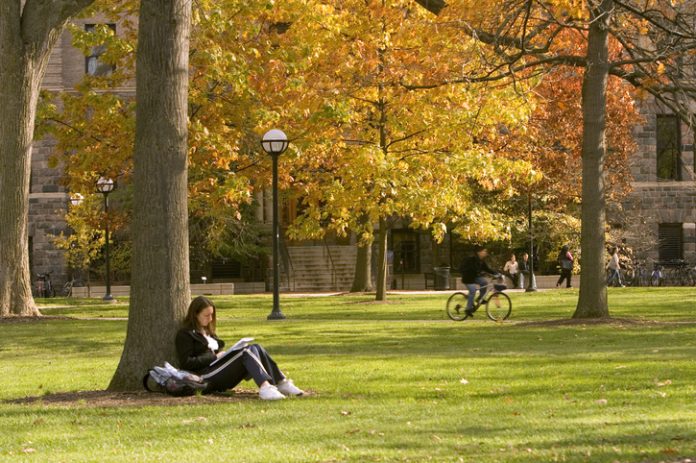Health organizations and prominent voices are calling on the nation’s colleges not to force students to get the COVID-19 vaccine as a requirement to return to campus next fall.
The Association of American Physicians and Surgeons (AAPS) issued an open letter on April 24 giving 15 reasons for college deans, governing boards, and trustees to reverse their COVID-19 policies. First and foremost, policies mandating vaccines violate “the bedrock medical principle of informed consent,” writes Paul M. Kempen, the president of AAPS.
The letter goes on to state that the COVID-19 vaccines are not fully approved by the Food and Drug Administration, but instead have been granted emergency use authorization, which would force students to bear an “unneeded and unknown risk.” It adds that “young adults are a healthy and immunologically competent and vibrant group that is at ‘extraordinary low risk for COVID-19 mortality and mortality.”
More than 100 colleges and universities said they will block students from returning to campus if they fail to show proof of full vaccination. Two faculty members at Notre Dame University called out administrators for their vaccine policy. There is a bill in New Jersey to block Rutgers University from forcing its COVID vaccine policy and the governors of Utah, Texas, and Florida have signed legislation barring proof of the COVID-19 vaccine. Colleges have historically required vaccines for measles, mumps, and other diseases, but such vaccines have been fully approved by the FDA, unlike the COVID-19 shots.
Are Colleges Violating the Law?
Children’s Health Defense, the vaccine safety advocacy organization founded by Robert F. Kennedy, has also weighed in on the debate. Kennedy, an attorney, wrote a letter to Rutgers University suggesting its policy may be violating federal law. Kennedy pointed out that no court has ever upheld a mandate for an EUA vaccine.
Kennedy cites federal law 21 U.S.C. § 360bbb-3(e)(1)(A)(ii)(III) that requires that those forced to get a vaccine under EUA be advised, ‘of the option to accept or refuse administration of the product, of the consequences, if any, of refusing administration of the product, and of the alternatives to the product that are available and of their benefits and risks.’
Students can refuse the vaccine because, by definition, products under EUA are experimental, Kennedy writes.
“Under the Nuremberg Code, no one may be coerced to participate in a medical experiment,” Kennedy writes. “Consent of the individual is ‘absolutely essential.’ The liability for forced participation in a medical experiment, not to mention injury from such coerced medical intervention, may be incalculable.”
AnneMarie Schieber (amschieber@heartland.org) is the managing editor of Health Care News.




















